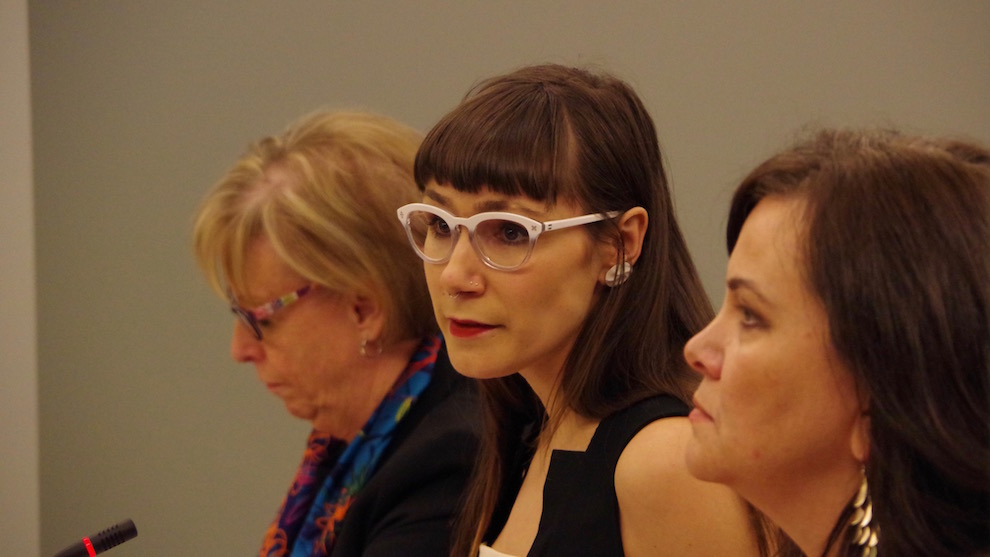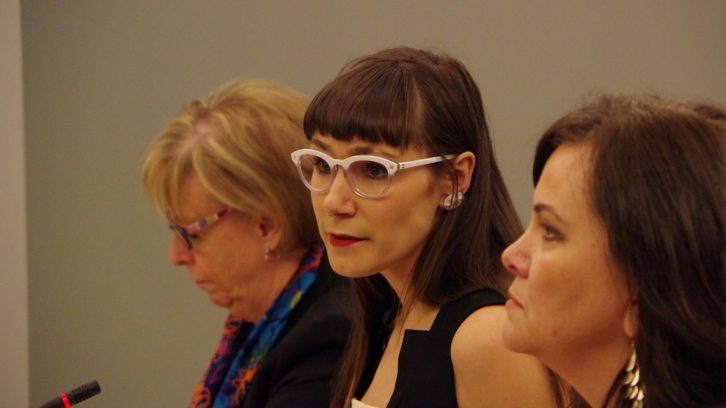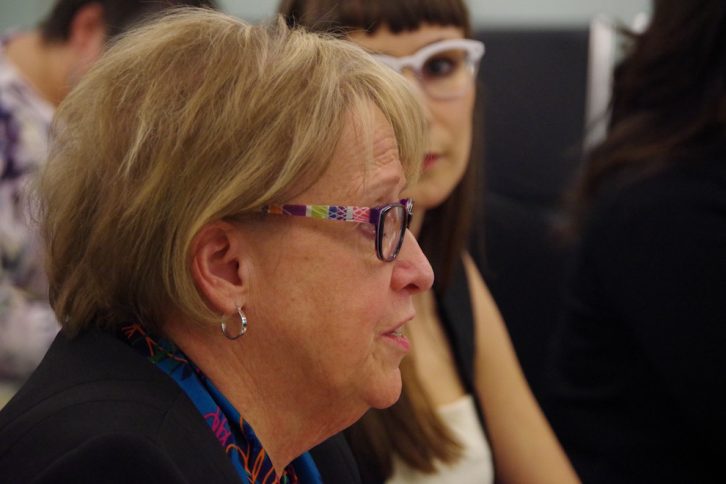Sexual violence
Nova Scotia beefs up its strategy to combat sexual violence
Nova Scotia is hiring prosecutors and opening a new domestic violence court

caption
Sarah Kay Granke (centre) spoke about the provincial sexual violence prevention strategy.Nearly two years into its first provincial sexual violence prevention strategy, Nova Scotia is expanding services dedicated to protecting women and addressing sexual violence.
The provincial government is hiring two special prosecutors to deal with cases of sexual assault. In addition, Nova Scotia plans to partner with the federal government to offer free legal advice to victims of sexual violence and open a new domestic violence court in the Halifax Regional Municipality.
“What I have heard clearly from women and support groups is that we need to provide better supports for victims of sexual and domestic violence in the criminal justice system,” Justice Minister Diana Whalen said in a news release on Tuesday.
While the provincial government invested $6 million in Nova Scotia’s first sexual violence prevention strategy in 2015, Whalen said more work needs to be done. Related stories
The strategy is intended to be implemented over three years. At a meeting of the Standing Committee on Community Services on Tuesday, Sarah Kay Granke, a sexual violence prevention and supports specialist, said that a lot of good things have happened, but it’s only a start.
“We know that sexual violence is not going to be solved in three years,” she told the committee.

caption
Sarah Kay Granke (centre) spoke about the provincial sexual violence prevention strategy on Tuesday.
Part of the province’s new commitment includes evaluating whether police are adequately equipped to investigate sexual assaults.
Granke said that in 2014, 591 cases of sexual violence were reported to police in the province.
“That’s only a fraction of what’s happening here in Nova Scotia,” she said.
Stephanie MacInnis-Langley, executive director of the Nova Scotia Council on the Status of Women, told the committee that there are gaps in knowledge about sexual assault.
“It speaks … to the work that needs to be done. This is a very complex issue; this is very different from a bank robbery,” she said. “So it’s really important that these kinds of crime get the attention and the time and education that they deserve.”
Successes
Young people, Granke said, are disproportionately affected. That’s one of the reasons why the provincial strategy has included input from youth.
“Basically the whole public engagement campaign has been focused on engaging youth,” said Granke.
The public awareness campaign was launched in October 2016 with two video advertisements. The first episode of “Sexual violence with the birds and the bees” has received over 45,000 views on YouTube as of March 7.
Along with the videos, the campaign includes a website, which had 9,265 views as of March 7.
“What I think is really positive is the ‘where to get help’ page has had 662 page views,” said Granke.
More work needed
MacInnis-Langley said she hopes that increasing discussion around the definition of consent will soon lead to some significant changes.
“My hope would be that eventually, with this kind of work, will spark conversation and will spark a discussion that leads us to the Supreme Court of Canada, which will then perhaps wrestle with the definition of consent for the Criminal Code,” she said.

caption
Stephanie MacInnis-Langley said working on the sexual violence prevention strategy is important for the sake of the next generation.
MacInnis-Langley said the outcry is all the more reason to keep working on this issue.
“If we fail our generation, let’s not fail the next generation,” she said.

